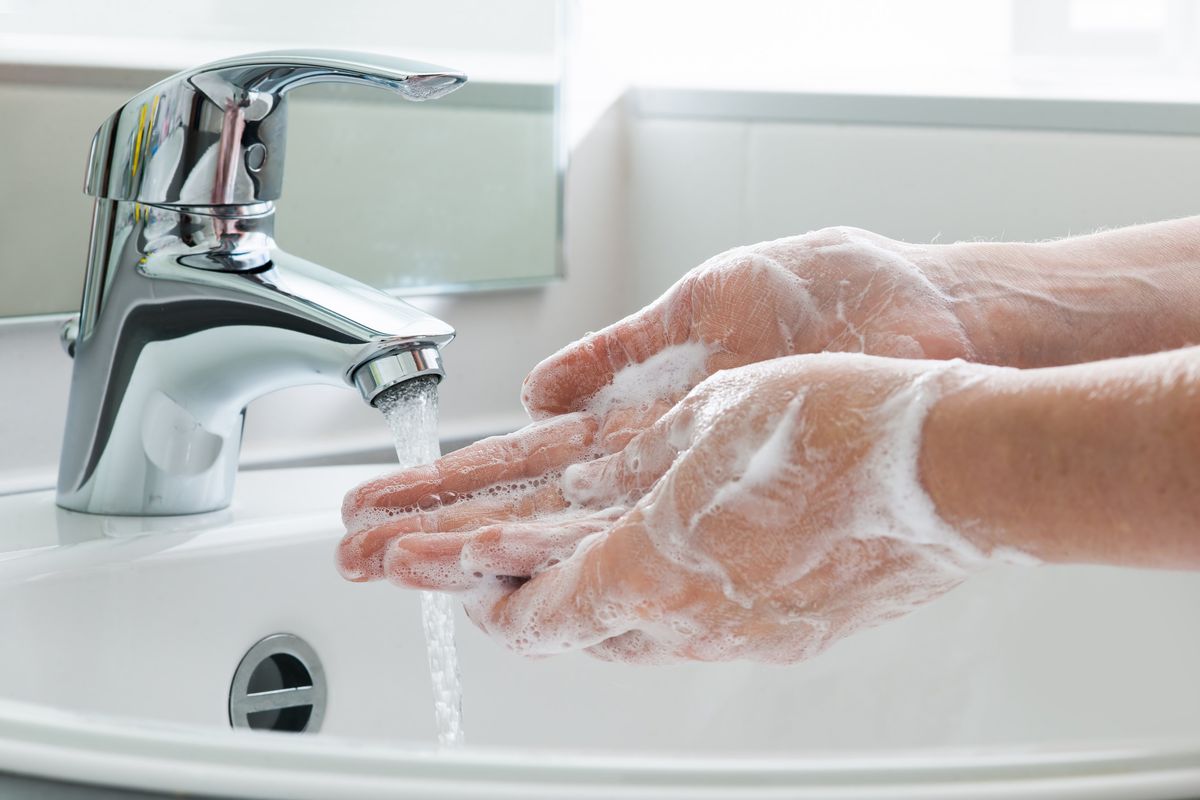Sinead Butler
Oct 23, 2024
Showers vs Baths: The Healthier Hygiene Routine?
unbranded - Lifestyle / VideoElephant
When it comes to hygiene, are you washing your hands after going to the loo and before handling food?
Well, not everyone is - at least in Australia - as the country's Food Safety Information Council has released data on the population's hand-washing habits, and the stats are illuminating to say the least.
Over 1,229 people were surveyed on their hand washing and it turns out 19 per cent of Aussies don't wash their hands each time they go to the toilet.
Meanwhile, nearly half admit to not washing their hands all the time before handling food.
When it comes down to gender, women are a little better at hand-washing compared to men after using the toilet. There's just a 3 per cent difference (83 per cent of women, and 80 per cent of men).
These percentages drop when it comes to handling food, but women do still wash their hands more than men in this instance too - 55 per cent of men compared to 62 per cent of women.
It is not fully understood why there is a difference between women and men in this particular task.

There's also a generational difference with this hygiene habit as young people (34 and under) are less likely to wash their hands when using the toilet (69 per cent do wash), in contrast to older people (65 and over) where 86 per cent hand wash.
Although a small percentage of the population was questioned, these findings appear to be similar to related surveys.
Most of us will be familiar with public messaging around the importance of washing our hands - particularly during the Covid pandemic.
But why don't people wash their hands?
For some, it's not being able to make the connection that not washing your hands can result in you being sick, particularly since the germs that can cause these illnesses can not be seen by the human eye. While you may not see the germs, they are certainly there - in fact, faeces has more than 100 billion germs per gram.
So if those who don't hand wash after using the loo place their hands on other surfaces, it means those toilet germs can be transmitted to these places - particularly if you're making food, where the germs can increase and produce toxins.
Or you may be influenced by the habits of those closest to you, such as friends and family who may or not know why hand washing is necessary.
These are reasons that are cited in one study by school children in India.
While a lot of us wouldn't get sick from germs spreading this way, it can affect those with weaker or compromised immune systems such as the elderly and those with illnesses such as cancer.
How long should you wash your hands?
You should wash your hands and lather them up with soap for at least 20 seconds, ensure you're getting under your nails also and then rinse, you should take the same amount of time to dry your hands, Christine Carson, Senior Research Fellow, School of Medicine, The University of Western Australia wrote in The Conversation.
Alcohol-based hand sanitiser is also effective in preventing germs, but there is an exception as it doesn't work with blood, faeces, meat, sand or soil - so in those instances, soap and water are best.
How to join the indy100's free WhatsApp channel
Sign up to our free indy100 weekly newsletter
Have your say in our news democracy. Click the upvote icon at the top of the page to help raise this article through the indy100 rankings.
Top 100
The Conversation (0)














